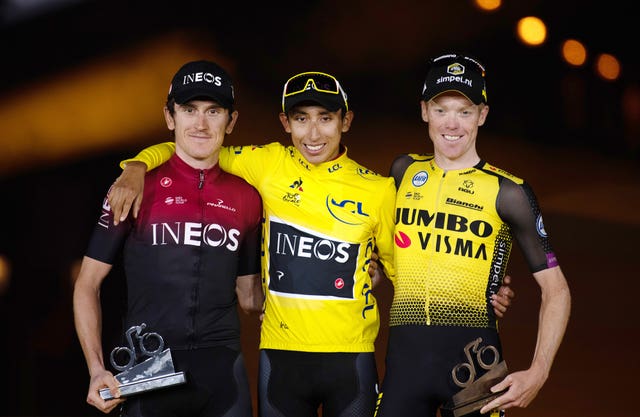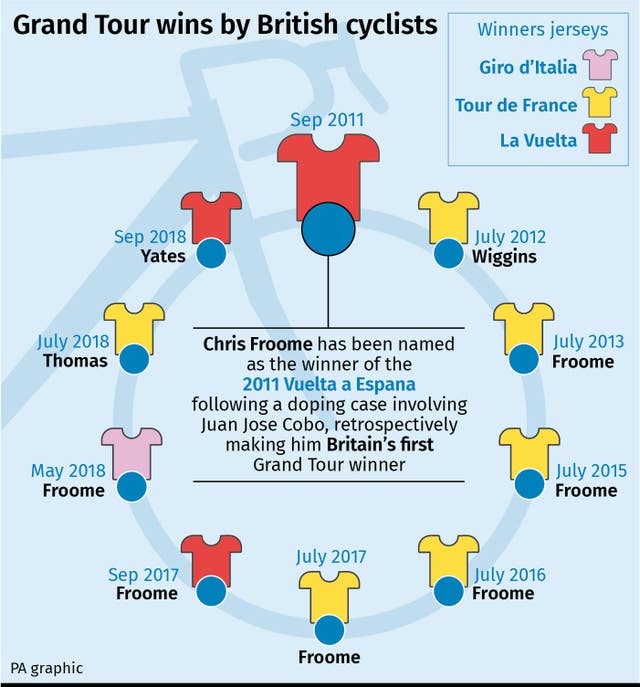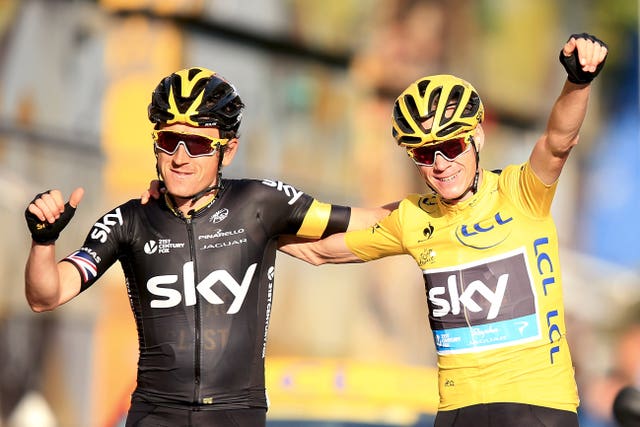The 107th Tour de France will be an edition like no other.
Riders will sign on in face masks before much-reduced crowds, racing under the looming threat they might not make it to Paris at all in these unique times.
The Tour is and long has been hugely symbolic for France. The only years it has not taken place since its debut in 1903 came during the world wars.

It has otherwise rolled on through security threats, protests and much more besides in a manner intended to mirror the nation it represents.
It does so as a celebration of a sport which can come to its spectators, rather than the other way around.
Cycling is sport in the wild – its greatest asset is that it uses the world's most dramatic scenery as its stadium.
But in these times that is also its weakness. Creating anything resembling a biosecure bubble is impossible for this vast rolling circus.
And so when riders roll out of Nice on Saturday morning, Paris will rarely have felt so far away.

Under protocols issued by organisers ASO, the race will continue even if there is a positive test within the peloton, but teams have been warned that two positive tests within their camp during the race would see their entire squad withdrawn and sent home.
What is not clear is at what point the continuation of the race itself would be in question.
Racing resumed across Europe in late July and has, on the whole, been a resounding success – with no repeat of the events which saw the UAE Tour abandoned in late February after a suspected outbreak among team staff there.
But on Tuesday, as teams were beginning to gather in Nice, there was a reminder of the risks as Bora-Hansgrohe withdrew from the Bretagne Classic at the 11th hour after one of their riders tested positive – though the team later said it was likely to have been a false positive.
Against this jeopardy, a fascinating battle for yellow should unfold, though not the one that was forecast.

When racing resumed, Team Ineos – who will race as the Ineos Grenadiers in France – were testing out a three-headed monster of Egan Bernal, Chris Froome and Geraint Thomas, all former winners.
Meanwhile Jumbo-Visma, who have invested all they can to end Ineos' run of seven wins in the last eight years, were ready to counter with Primoz Roglic, Tom Dumoulin and Steven Kruijswijk.
But then Ineos dropped the bombshell that Froome and Thomas would stay home due to a lack of form, while their Dutch rivals lost Kruijswijk to a shoulder injury, then saw Roglic suffer a heavy crash at the Criterium du Dauphine to leave questions over his own fitness.
With no Froome and no Thomas, this is the first Tour in a decade without a British contender.
3 Grand Tours3 Leaders1 Common Purpose
Sir Dave Brailsford expands on our racing plans for 2020
— Team INEOS (@INEOSGrenadiers) August 19, 2020
Instead the race is more likely to dance to the tune of the Colombian national anthem as Rigoberto Uran, Daniel Martinez, Sergio Higuita, Nairo Quintana and Miguel Angel Lopez queue up to challenge defending champion Bernal.
Thibaut Pinot will carry the weight of French hopes, 35 years after Bernard Hinault was the last home winner.
Pinot was in contention before being forced to abandon on stage 19 of last year's race, the fourth time he had failed to finish the Tour in his seven starts to date.
Soon after, a hailstorm forced a landslide and what promised to be a fascinating climax to a tense battle for yellow was effectively washed away, with the penultimate two stages hugely compromised by the weather.
This year we must hope that forces even greater do not interrupt the show.
/https%3A%2F%2Fsportsmole-media-prod.s3.gra.io.cloud.ovh.net%2F19%2F30%2Fegan-bernal.jpg)
/https%3A%2F%2Fsportsmole-media-prod.s3.gra.io.cloud.ovh.net%2F22%2F01%2Fchris-froome.jpg)
/https%3A%2F%2Fsportsmole-media-prod.s3.gra.io.cloud.ovh.net%2F24%2F46%2Fjude-bellingham.jpg)
/https%3A%2F%2Fsportsmole-media-prod.s3.gra.io.cloud.ovh.net%2F24%2F36%2Fhannah-cockroft.jpg)
/https%3A%2F%2Fsportsmole-media-prod.s3.gra.io.cloud.ovh.net%2F24%2F36%2Fsarah-storey.jpg)
/https%3A%2F%2Fsportsmole-media-prod.s3.gra.io.cloud.ovh.net%2F24%2F35%2Fpoppy-maskill_1.jpg)